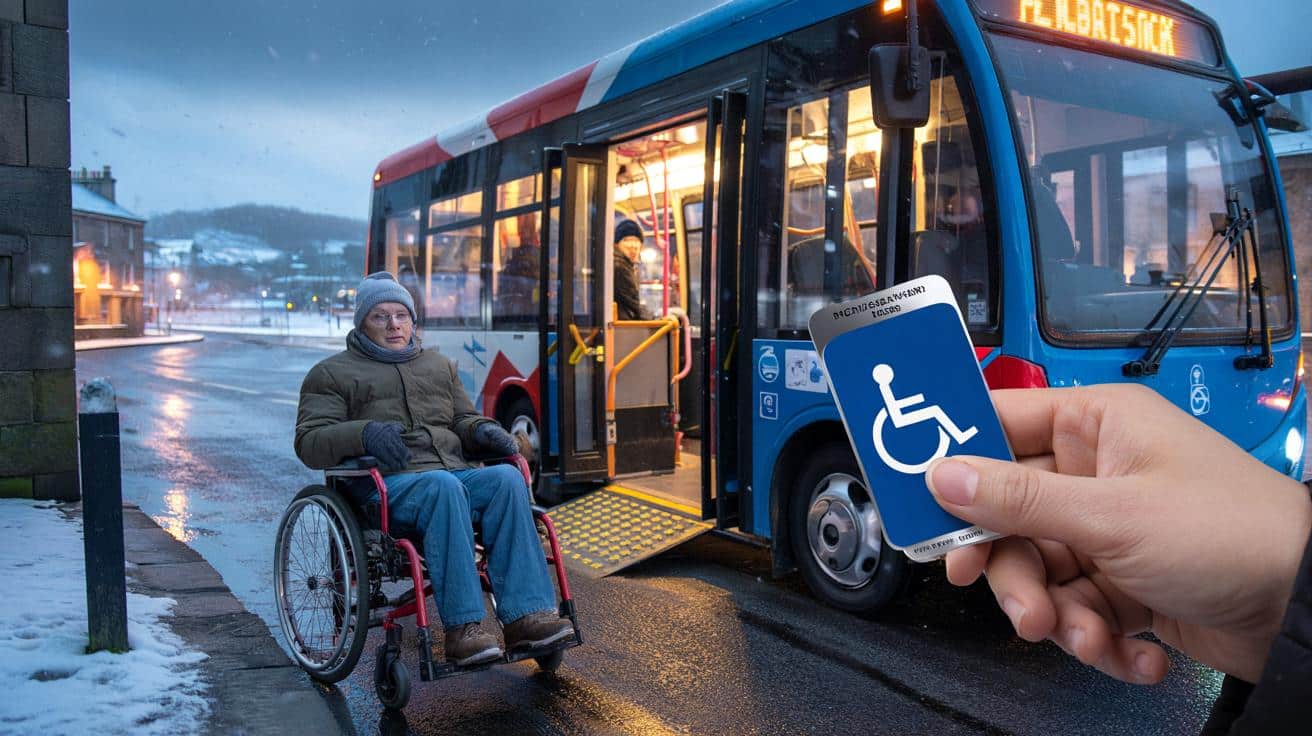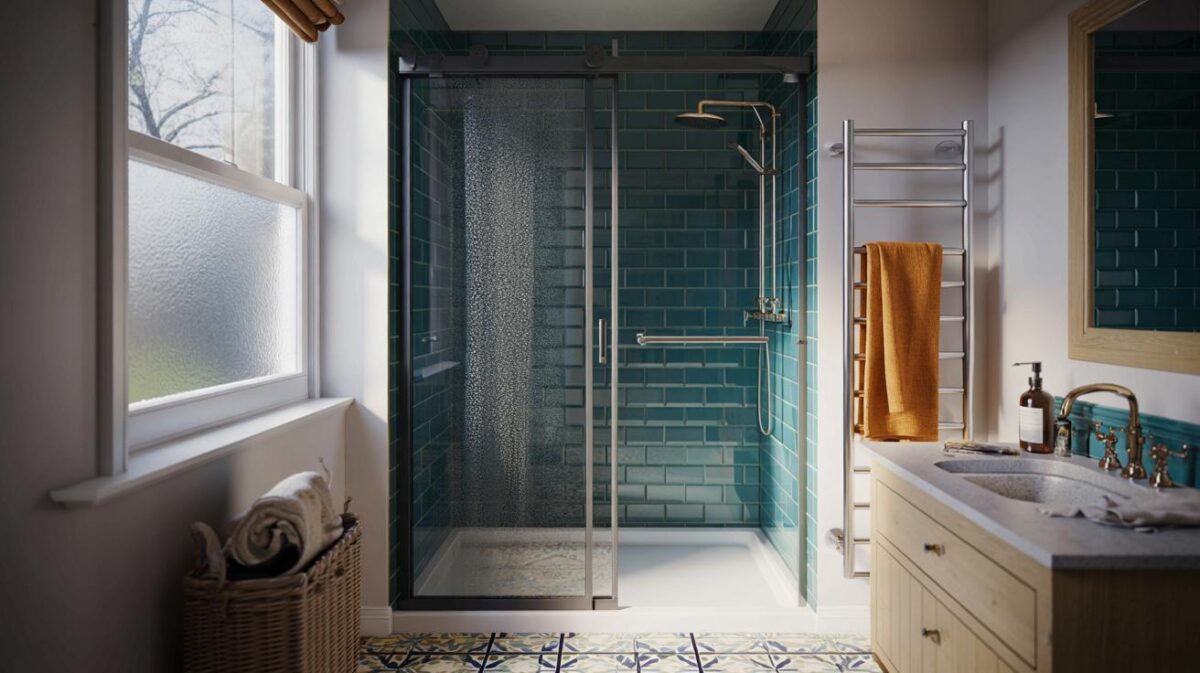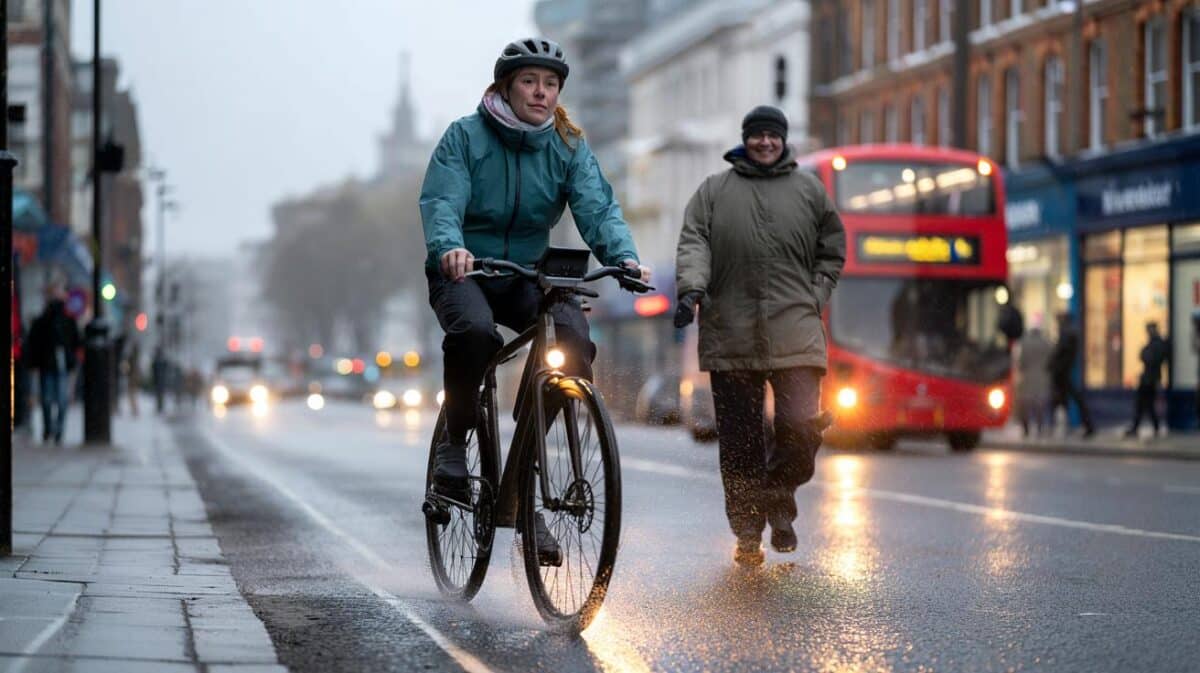One extra card could mean free bus journeys across Scotland.
As the nights draw in and fares squeeze household budgets, a quiet rule could make moving around far easier for disabled people. In Scotland, more than 235,700 residents with a Blue Badge may be eligible for year-round free bus travel by using the National Entitlement Card. The option already exists, yet many people do not claim it.
The scheme links disability evidence to free bus access, with the Blue Badge serving as a straightforward route for many. While eligibility often reflects disability benefit awards, official guidance confirms the badge itself can unlock the application. That single detail matters.
Who qualifies for Scotland’s free bus travel and the key disability benefits to check
Disabled residents in Scotland can travel for free on local buses if they qualify for the National Entitlement Card. Eligibility commonly rests on receiving certain benefits from either the UK Government or Social Security Scotland. The list includes Attendance Allowance, PIP, War Pension Constant Attendance Allowance, and the higher rate of the mobility component or the higher or middle rate of the care component of Disability Living Allowance. It also covers Adult Disability Payment and the higher rate mobility or higher or middle rate care component of Child Disability Payment, plus Pension Age Disability Payment.
Here is the bit many miss. People with a Blue Badge can also qualify for the National Entitlement Card, which then unlocks free bus journeys. For someone who cannot walk far to the stop, that shift can turn a cold commute into a manageable trip. And it can help carers too.
The Blue Badge detail that can fast-track your National Entitlement Card
A Blue Badge supports everyday life in multiple ways. Whether you are driving or riding as a passenger, the badge lets you park for free in disabled bays and can exempt you from some local restrictions. That closeness to the entrance is not a luxury in winter.
Eligibility for the badge is wider than many assume. If a physical disability or health condition limits your walking, you could qualify. People with hidden conditions such as dementia, autism or Parkinson’s can also be eligible. The badge becomes a simple proof point when you apply for the National Entitlement Card, easing the paperwork at a time when energy is precious.
What to show when you apply, including if your badge was issued outside Scotland
Official guidance from Transport Scotland explains the documents you can use to start the National Entitlement Card process. You do not need an encyclopaedia of evidence. Transport Scotland states « A valid Blue Badge issued outside Scotland, in the rest of the UK or by the authorities of another EU member state will be acceptable. » That makes the process a touch easier to navigate in practise.
- Your Blue Badge, or your latest V11 vehicle licensing reminder from DVLA, or a DLA404 from the DWP
Those items act as acceptable proof when you apply. The message is simple, and timely for winter travel. If you already hold a Blue Badge, your path to free bus journeys may be shorter than you think.
How Blue Badge rules work today and when you might still need an assessment
Some people automatically qualify for a Blue Badge. That can include children under 16 with confirmation from a visual impairment team, adults registered or certified as severely sight impaired, people on the higher rate mobility of Disability Living Allowance, and those on PIP who scored 8 points or more for moving around or 12 points for planning and following a journey. It also covers people on Adult Disability Payment with the same points, those on the higher rate mobility of Child Disability Payment, recipients of War Pensioners’ Mobility Supplement, and people who received a lump sum under tariffs 1 to 8 of the Armed Forces Compensation Scheme with a permanent and substantial disability.
Others may still qualify after an assessment by their local council. You could be eligible if you cannot walk at all, or are virtually unable to walk for at least 12 months. You may also qualify if you regularly drive and cannot use parking meters because of a severe disability in both arms. Parents of children under three who must stay close to a vehicle for medical treatment, or who need bulky medical equipment, can also be eligible. People with a mental health condition who lack awareness of traffic danger on journeys may be considered too.
When automatic criteria do not apply, councils can arrange a mobility assessment with a healthcare professional. It sounds daunting, yet many people find it straightforward once they know what evidence to bring. If in doubt, check your badge status first, then ask about the National Entitlement Card. You might to feel relief the first time you tap on and travel free.









